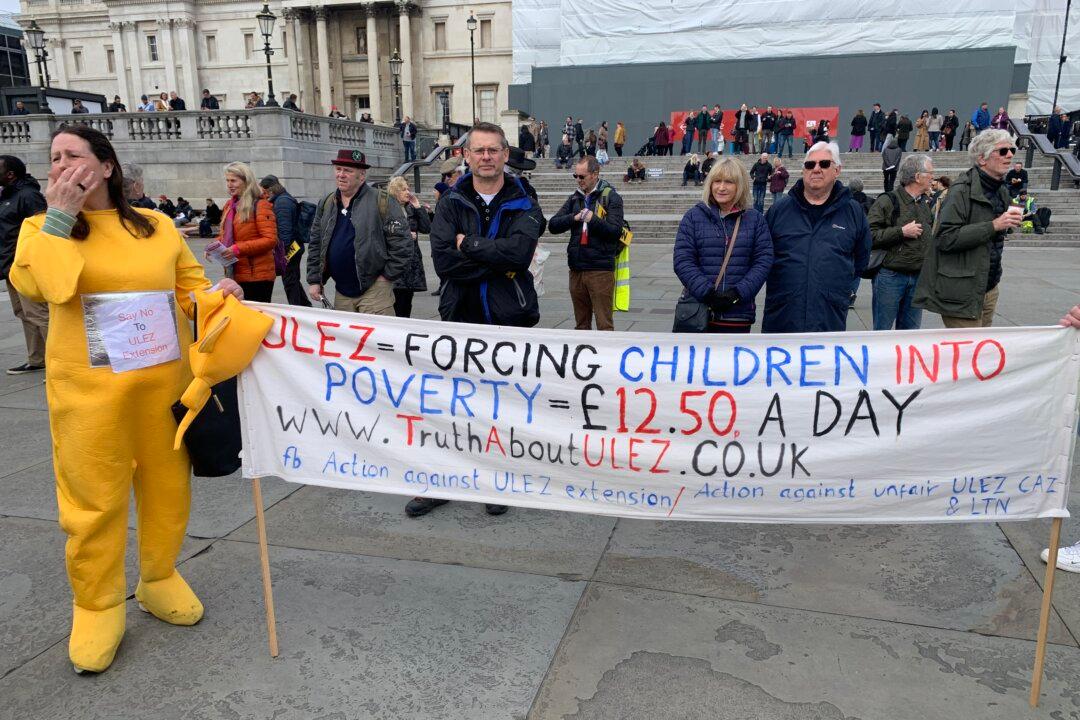The economic impact of the proposed extension of London Mayor Sadiq Khan’s Ultra Low Emission Zone (ULEZ) will wipe out “at least” half a billion pounds from the capital’s economy per year, according to new research.
A new report, commissioned by Fair Fuel UK and written by economic consultancy CEBR, warns that London’s air pollution-cutting scheme that charges motorists by the day to drive will continue to have a significantly negative impact on the city’s economy.





